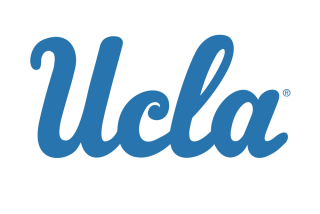North Carolina State Is Put on NCAA Probation : College Basketball: Two-year penalty will keep the Wolfpack from appearing in NCAA or National Invitation tournaments this season.
The NCAA put the North Carolina State basketball program on probation Tuesday for two years because of violations involving the sale of complimentary tickets and sneakers during the past four seasons.
The sanctions will keep the Wolfpack out of this season’s NCAA or National Invitation tournaments.
Jim Valvano, who resigned recently as athletic director as a result of an internal investigation, will remain as basketball coach, interim Chancellor Larry Monteith said at a news conference in Raleigh, N.C.
“The report pinpoints institutional responsibilities and does not single out individual responsibilities,” Monteith said. “Therefore, no personnel actions are called for at this time, nor will any be taken based solely on this report. However, I will continue my evaluation of the men’s basketball program.”
Besides ordering the postseason ban, the NCAA concurred with the school’s self-imposed sanctions resulting from the internal investigation: no off-campus recruiting for a year, no paid recruiting visits for a year and a limit of 12 basketball scholarships, instead of the customary 15, during each of the next two academic years.
The NCAA suspended a sanction that would have kept the school’s team off live television for a year because of “mitigating circumstances.”
The school also will not be required to return any of its $1.7-million share of NCAA tournament revenues during the past four seasons.
The NCAA said it did not impose harsher penalties because the school “undertook corrective and punitive actions” before the hearing.
North Carolina State will be allowed to participate in the ACC tournament. Commissioner Gene Corrigan said the conference voted Tuesday to allow the Wolfpack in.
The NCAA cited North Carolina State officials’ prompt reporting of alleged violations to the NCAA and cooperation in the investigation after a book jacket for author Peter Golenbock’s book, “Personal Fouls,” had become public.
Valvano said that being barred from the NCAA tournament was “as serious a hurt and blow as I have had personally in my life.” But despite the loss of potential revenues--the tournament brought North Carolina State $707,000 last year--he said, “We accept the NCAA findings and its punishment.”
The infractions committee said that, although North Carolina State did not gain “a competitive advantage” from its transgressions, the case was major because of the lack of institutional control or monitoring and because the violations were “not isolated or inadvertent.”
The NCAA cited “as many as 650” instances of improper use of complimentary tickets, which are limited to family members, fellow students and teammates’ family. The NCAA said that several team members during the 1985-86, 1986-87 and 1987-88 seasons each received a total of more than $1,000 in value for the complimentary tickets.
They sold for as much as $150 each, and players also traded them for stereo equipment and other items. The NCAA concluded that some of the team’s managers, at the urging of players, changed the names on the complimentary list shortly before games began.
Regarding sneakers, the NCAA said that “excessive numbers of shoes” were made available to basketball players, “with little or no effort to keep track of the shoes” by the school. Some players sold them to other athletes and fellow students, according to the NCAA, and several players exchanged the shoes, valued at $75 a pair, at a local sporting good store for other shoes and apparel of equal value.
“In this case, the failure to exercise institutional responsibility concerned matters of omission, such as the absence of adequate compliance monitoring systems and slow responses to correct practices and procedures that the institution and its then director of athletics . . . should have recognized as fraught with potential for rules violations,” the infractions committee concluded.
The NCAA also cited four secondary violations, involving free meals, lodging and transportation, but said those violations had no impact on the sanctions imposed.
Valvano, who coached the Wolfpack to the 1983 NCAA title, has a clause in his contract that provides him with a $500,000 payoff if the university fires him, unless he is directly linked with an NCAA rules violation. Becky French, the university counsel, said there is nothing in the NCAA findings that would exempt the university from having to make such a payoff at this time.
“Personal Fouls” claimed that grades had been changed and that positive drug tests had been kept secret to keep players eligible. The major area of the internal investigation turned out to be academic abuses, however, an area not covered by the NCAA.
“Even if the NCAA had not found any problem with shoes or tickets, there’s still the overriding concern identified in our report in August about the abuse of academic rules and regulations,” said Art Padilla, vice president for academic affairs for the University of North Carolina system. “This is being addressed forcefully by the institution.”
Golenbock said in a telephone interview from Pompano Beach, Fla., with the Associated Press that he was surprised that the NCAA had focused on players instead of “the tandem of Valvano and former chancellor Bruce Poulton.”
“I think the book made its impact and I’m pleased about that,” Golenbock said. “And I’m pleased for my sources who had the guts to speak out.”
More to Read
Go beyond the scoreboard
Get the latest on L.A.'s teams in the daily Sports Report newsletter.
You may occasionally receive promotional content from the Los Angeles Times.










